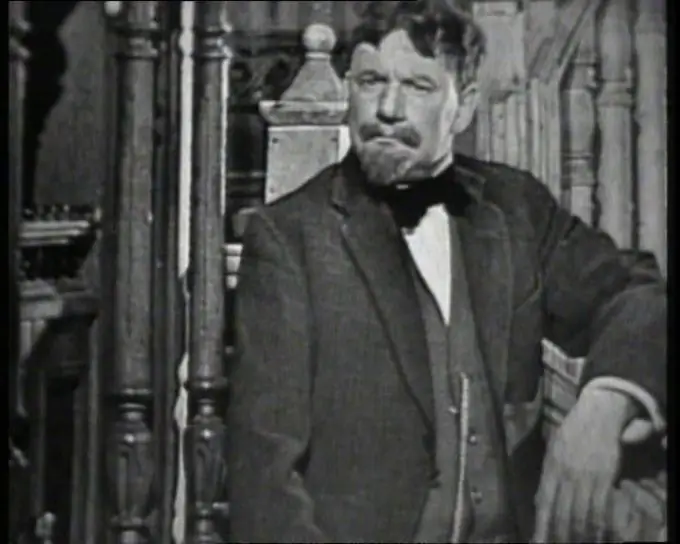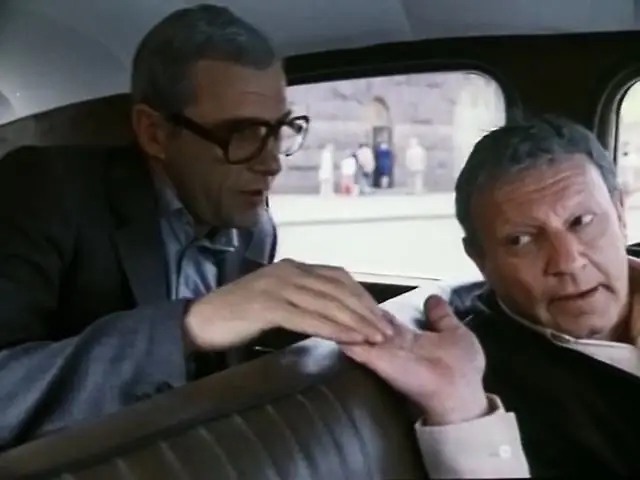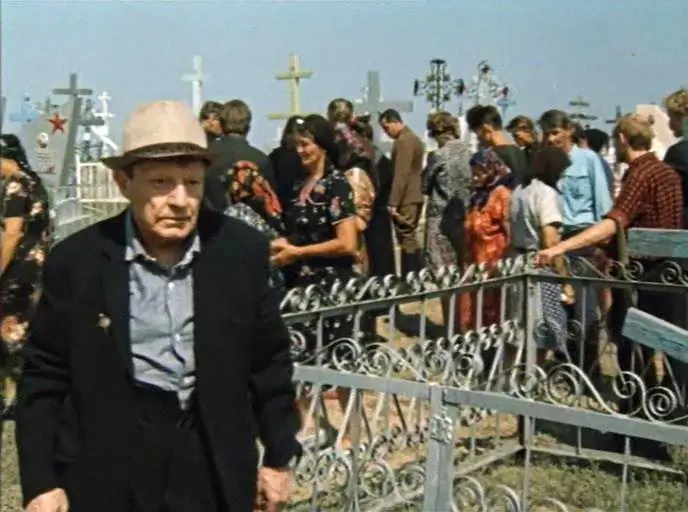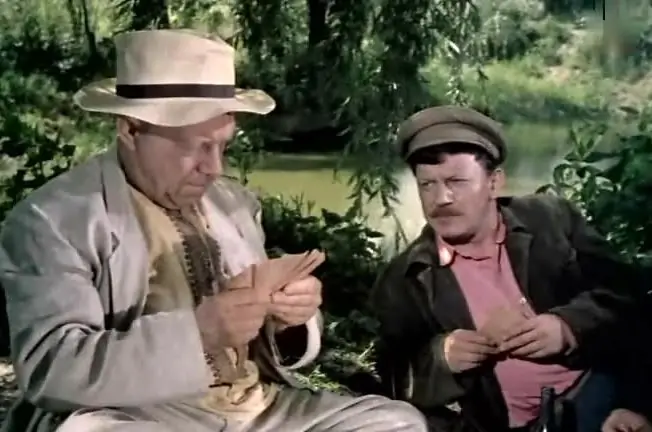- Author Antonio Harrison [email protected].
- Public 2024-01-09 15:32.
- Last modified 2025-01-22 21:44.
Andrei Kryukov is a Soviet post-war actor, theater director and teacher, one of many actors who felt the full horror of political repression. In the USSR, both ordinary citizens and prominent figures in science and art fell under the Stalinist repressions.

Biography of Andrey Kryukov
The famous Andrei Sergeevich Kryukov was born on June 12, 1925 in Moscow. At this time in Moscow: the third congress of the Soviets of the USSR was opened, the first issue of Komsomolskaya Pravda was published, the pioneer camp Artek was opened in Gurzuf (Crimea). When the Great Patriotic War began, Andrei Kryukov was sixteen years old.
GITIS
In the postwar years, Andrei Kryukov lived in a totalitarian state, where there was a colossal pyramid. Everyone around them perceived a hierarchical way of thinking. Andrei Sergeevich Kryukov entered GITIS (State Institute of Theater Arts) at that ominous time, in which political repressions were already in full swing. Even the atmosphere of fear was not felt within the walls of GITIS, at least the students did not, because they were young, happy, hoped for a beautiful future, but the mood of the teachers was already felt. For many decades GITIS was the only place in the country where directing was taught. Legendary names were collected here, starting from Sakhnovsky, and then Tarkhanov, and Popov, and Zavadsky, and many others followed. Andrei Sergeevich Kryukov studied with people who were at the front, who came to classes in greatcoats, in tunics. The teachers are gray-haired people with great merit and the obligatory badges of the Stalin Prize laureates on the lapels of their jackets. A decent actor's rate was two hundred and fifty rubles. And the students received about a hundred rubles. Received a scholarship for four months at once. Moreover, taxes were not deducted from the Stalinist scholarship. Students were immediately explained that the most important thing is Marxist-Leninist aesthetics. And in political economy, you still need to know very well "a short course in the history of the CPSU (b)." And, of course, Andrei Kryukov, like all students, was in love with acting teachers: Raevsky, Konsky, Leslie, Chefranova.

Moscow Theater of Satire and GUTSEI
There were few theaters; staging in Moscow was given enormous not only artistic, but also, if I may say so, social significance. If the performance does not come out within a year, then some problems are concentrated in this performance, which become significant almost for the whole country. The fate of the performances was decided by ministers, members of the Politburo. The government decided on the fate of the film. Life was completely different compared to the present.
The beginning of the fifties of the last century was a rather tense time, some jokes and jokes were dangerous. Andrei Sergeevich Kryukov during these years, having received his education at the State Institute of Theatrical Art, began to work as an artist in the Moscow Theater of Satire and at a seminar on Marxist-Leninist aesthetics once asked a person who came from the district committee to lead this seminar: “Is it true that Did Lenin leave some kind of testament? Of course, this man said it was not true. But the theater's party organizer went to the appropriate authorities the next day, Andrei Sergeevich Kryukov was arrested two days later, on February 20, one thousand nine hundred and fifty-one on a denunciation. Andrei Kryukov was convicted and immediately sent to the camp. Under Stalin, political arrests were the norm, and very often cases were fabricated and based on denunciations, without any other evidence. Andrei Kryukov was released after Stalin's death in 1953.
Andrey Sergeevich Kryukov teaches at the State School of Circus and Variety Art named after M. N. Rumyantsev (Karandash) (GUTSEI), which trains circus and variety artists. After one thousand nine hundred and sixty-five, Andrei Kryukov as a director. he was engaged in staging pop numbers together with other teachers, such as S. A. Kashtelyan, Yu. P. Belov, N. I. Slonova, F. P. Zemtsev, V. D. Shpak, B. A. Breev and others.

Acting creativity of Andrey Kryukov
Theatrical works of the actor:
"24 hours a day" by Oleg Stukalov (production)
Andrey Sergeevich Kryukov starred in the following genres: drama, comedy, action. He performed the following film roles:
- In 1991, the feature film "The Ghost" played the role of Alexander Filippovich.
- In 1990, the feature film "The Suicide" was featured in episodes.
- In 1986, the feature film Race of the Century played the role of a journalist.
- In 1982, the feature film "Profession - Investigator" played the role of Lykin's friend.
- In 1968, the feature film "The Sixth of July" played the role of Boris Kamkov.
- In 1966, the feature film "Capa's Collection" (film-performance) played the role of Stepanov.
- In 1962, the feature film "The Apple of Discord" played the role of Prudky.
- In 1962, the feature film "The Descendants of Rabourdin" (film-play) played the role of Isaac.
Scoring
- In 1986-1987, the animated film "Kuzya the Brownie" (animated).
- In 1980, "Through Thorns to the Stars" was voiced by Professor Prul.
Participation in films
In 1974, a documentary film "Pyotr Martynovich and the years of a great life."

Personal life
Andrei Sergeevich Kryukov always reluctantly recalled those years spent in the camp. The actor passed away at the age of eighty on the thirty-first of August two thousand and five in Moscow. He was buried at the Vagankovskoye cemetery in Moscow (plot number thirty-four).






